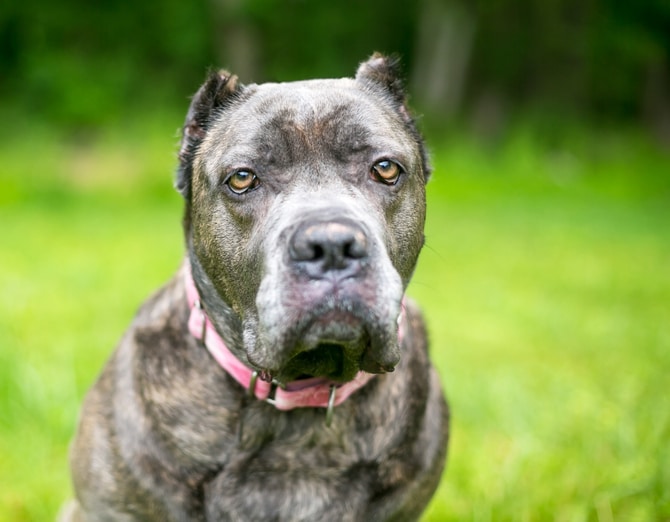Cane Corso Food and Health
The Cane Corso is a working dog. This breed is docile with an even temperament. They require training and regular contact with their owners to remain mentally fit. Leaving this dog alone while you go to work will result in the development of mental disorders. Lonely dogs dig up yards and spend hours barking at pedestrians and other dogs that pass the fence or gate.
Training the Cane Corso is easy. This breed listens and obeys commands readily. They need to understand who is the alpha in the family. Failure to train your dog will result in them disallowing entry to your property, keeping visitors away in a threatening manner. They may also develop overly protective behavior, snapping at anyone who gets near you or your kids.
Cane Corsos suffer from cancer risk and the development of tumors as they enter their senior years. Almost 60-percent of dogs develop hip dysplasia, and a 20-percent are at risk of elbow dysplasia.
The breed is prone to ruptures of the cruciate ligament in their hind legs that induce lameness. Vision disorders like cataracts and glaucoma are common, and one in every seven dogs may be epileptic.
Heart disease affects nearly 20-percent of dogs, and they have high sensitivity to heartworm medication. Cane Corsos have thin skin and frequently develop dermatological issues such as rashes, bed sores, hives, and eczema.
Always check the credibility of your breeder before buying a Cane Corso. The Cane Corso Association of America is the official parent organization of the breed in the U.S, recognized by the American Kennel Club. Check their site for a list of approved breeders in the country.

